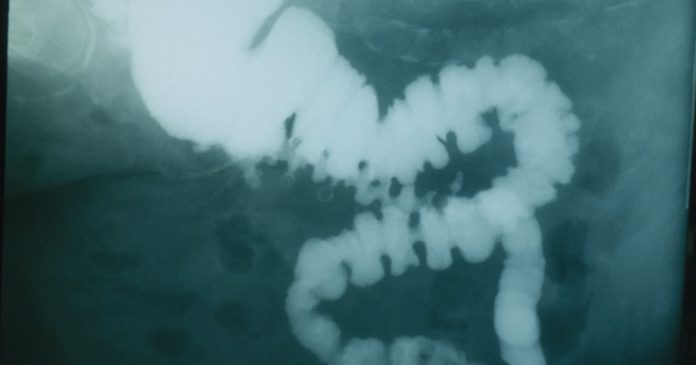Q. Can I ever recover from acute diverticulitis?
A. The answer depends on the severity of your diverticulitis.
The mildest end of the spectrum of diverticular disease is diverticulosis. Diverticulosis is simply a collection of outpouchings, or diverticula, in the wall of the colon. Aside from being an occasional source of blood in the stool, diverticulosis usually does not cause symptoms.
Diverticulitis — the suffix “itis” indicates inflammation — typically occurs when a diverticulum becomes blocked by a piece of hard stool, called a fecalith. This localized blockage leads to bacterial overgrowth, followed by inflammation, infection and abscess formation. At the most severe end of the spectrum, the abscess can rupture and stool may enter the abdominal cavity, which may result in sepsis, a dangerous blood infection.
But severe disease is not the norm. Most people with diverticulosis do not progress to diverticulitis. Only 10 percent to 20 percent go on to have pain or bleeding.
Even among those who do develop diverticulitis, most recover uneventfully, typically after seven to 10 days of oral antibiotics. And fewer than one in five experience a recurrence. An analysis of 2,300 patients across 19 studies found very low rates of complications and recurrences among patients with diverticulitis who were treated as outpatients.
Complications are more likely to arise in people who have suppressed immune systems or have other serious diseases, such as kidney failure. They will likely require more aggressive treatment and will be at higher risk for recurrences. This is also true for the minority of patients who have diverticulitis that is complicated by abscess rupture and sepsis.
In some cases, an undetected medical problem may cause a recurrence of diverticulitis. For this reason, the American Gastroenterological Association recommends that colonoscopy be performed after resolution of diverticulitis, unless a colonoscopy was performed recently. The test can help ensure that another diagnosis, such as colon cancer, was not missed.
Studies continue to expand what we know about diverticulitis. The traditional advice to avoid nuts and to increase fiber is being questioned, as is the need for routine antibiotics and surgery. The findings suggest that, for most people, diverticulitis may have a more favorable course than was previously thought.
Do you have a health question? Ask Well
Source : Nytimes












